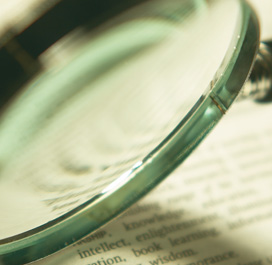Author: Loch K Johnson
ISBN No: 9780190682712 (hardback)
Review date: 24/04/2024
No of pages: 624
Publisher: Oxford University Press
Publisher URL:
https://global.oup.com/academic/product/spy-watching-9780190682712?cc=gb&lang=en&
Year of publication: 16/02/2018
Brief:
Spy Watching is a dauntingly thick book, sub-titled ‘Intelligence Accountability in the United States’, that includes 66 pages of footnotes, a 26-page bibliography, and even five pages spelling out hundreds of abbreviations and codenames. But you have plenty of reasons to want to get stuck into this book about America and its spying agencies, whether you are fascinated by spies, or the CIA in particular, or by the United States in general, writes Mark Rowe.
From the outset Johnson sets spying in the context of US history and indeed civilisation, pointing out that ‘in a democracy, some degree of strain – even turbulence – is inevitable between intelligence officers and their overseers’. You could probably come up with several of the cases that Johnson details – such as the Bay of Pigs ‘fiasco’ of the 1960s, Watergate in the 1970s, the Iran-contra scandal of the 1980s, and most recently the controversies over the National Security Agency (NSA) wire-tapping and gathering of metadata, ‘which may bhe viewed as a prolonged unfolding of a single NSA scandal involving over-zealous metadata and warantless operations – to critics, a slow-motion signals intelligence Bay of Pigs’. As even that short quotation may show, Johnson has a way with words besides a sure grasp of his subject – and one of those attributes very much leans on the other.
Running like a thread through the narrative is an understanding that scandals and failures are almost bound to come as a result of a ‘cycle’ – the elected politicians that may seek to establish and more to the point enforce ‘rules of the road’ for secret agencies, lose interest and stop paying attention, so that some in the agencies may misuse their powers, or not do a very good basic job (not the same things at all, but with equally harmful effects). Failures or scandals follow, whether Iran-contra or ‘the failure to warn the nation about the 9-11 attacks in 2001’. That delivers a ‘sudden punch to the gut’ and politicians shake themselves, investigate, and set fresh rules.
Ideally, Johnson suggests, lawmakers ought to be ‘guardians’, both partners and critics of the spy agencies; vigilant, but fair-minded, to use Johnson’s words; because a democracy such as the US needs spies, in a world of nuclear and other devastating weapons, and enemies; but those spies have to be accountable in a democracy, while not being exposed in public that would make their work harder, or even deadly dangerous. But without someone – whether lawmakers, the wider public through the media (and now social media) – having knowledge, how can the US know what if anything to restrain in the agencies; such as use of torture as an interrogation method, or missile-laden drones ‘to achieve foreign-policy objectives’. And how (in an ever more politically polarised America) to stay neutral about those evocative things? Because as Johnson points out in an epilogue, ‘Intelligence in the early Trump administration’, the ‘cardinal sin of intelligence is politicization, the twisting of intelligence reports to buttress policy goals’ (which, a British reader might think, is as true for the UK as the UK like the US went to war with Iraq over the ‘hypothesis that Iraq possessed WMD [weapons of mass destruction]’.
In other words, the politics of believing what you want to, and intelligence based on facts, don’t mix, and Johnson raises concerns that the Trump years will put politics first – although a saving grace may be that the intelligence agencies last year appeared a low priority for Trump. As Johnson puts it bluntly, despite the US spending $70 billion a year on intelligence gathering, such as the daily briefing paper given by the CIA to the president, ‘the president [Trump] seemed to prefer tweeting and watching TV’. Further on Johnson even more bluntly writes of ‘madness’ seeming to have descended on Washington DC, as Trump last year made the shocking allegation that Obama ordered wire-taps on him during the election campaign.
This is a learned, mighty and magisterial book. Even readers from nations friendly to the United States will do well to remember that the wise country spies on its friends as well as its enemies (and Johnson to his credit does cover the CIA being ‘aggressively engaged worldwide in the use of covert actions’, even against other democracies. With this book, you can ‘spy’ on the United States with profit and intellectual satisfaction.
About the author
Johnson is the Regents Professor of Public and International Affairs at the University of Georgia. He’s also author of The Threat on the Horizon (OUP, 2011): ‘An Inside Account of America’s Search for Security after the Cold War’; among other related works.










